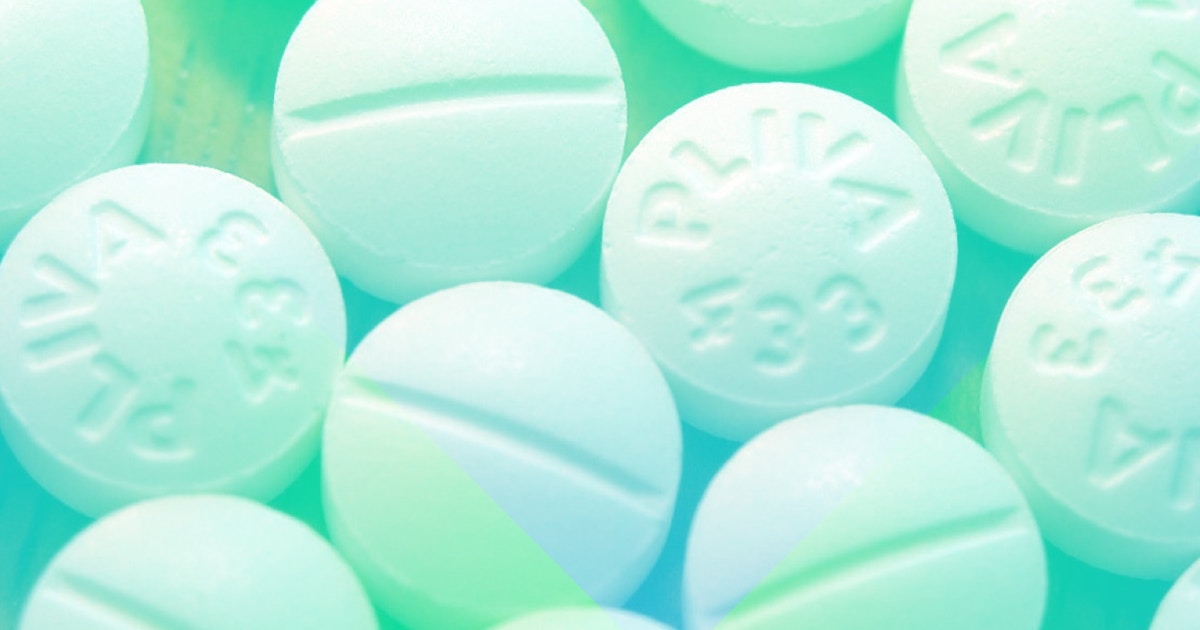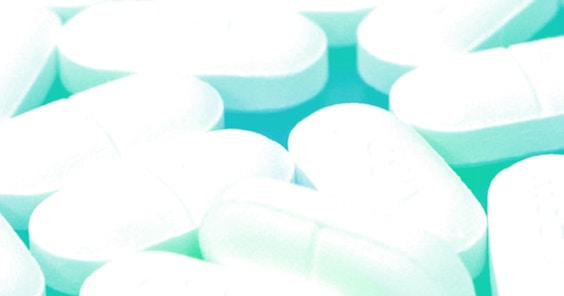I Am Sober is a free app that helps you get some control back in your life.

What is Trazadone?
Last Updated: Fri, January 19, 2024It has also been known to help improve insomnia symptoms. Serotonin modulators work differently than more common types of antidepressants like SSRIs because they alter levels of serotonin in the brain. Trazodone works by monitoring the amount of this neurotransmitter.
Is trazodone addictive?
The answer to this question is no- trazodone is not addictive. However, that does not mean that it cannot be abused. In theory, any drug can be abused. Those who abuse trazodone oftentimes crush and snort the pills to intensify its sedative effects. With that being said, antidepressant abuse is a very rare phenomenon. Additionally, those who abuse trazodone oftentimes have a long history of narcotic abuse or mix their trazodone with other drugs, meaning that the trazodone is not the primary drug.
When it comes to any antidepressant medication, including trazodone, there is very little chance of addiction because the drug’s properties aren’t habit-forming. If you are worried about being addicted to trazodone, you could consult a medical profession. However, chances are that you are not addicted. Trazodone is a medication meant to be taken daily, but just because it is taken frequently does not mean that it’s addictive. There is a difference between dependence and addiction. While dependence may be an aspect of addiction, people can be dependent on medications without having a physical addiction to them. For example. those who use trazodone by prescription need it to help balance the chemical levels in their brands. This means that, if they decide to stop taking the medication, they should be weaned off so that their body can properly adjust to being without the medication. However, the drug itself does not have addictive properties. It should also be noted that trazodone is a medication that can safely be prescribed to recovering addicts and alcoholics for the treatment of depression or anxiety.
With that being said, it is possible for trazodone to be abused- although extremely rare. Here are some symptoms of trazodone abuse:
-
Using trazodone without a prescription
-
Taking trazodone more often than prescribed
-
Buying trazodone illegally
-
Using trazodone for reasons outside of its purpose (to relieve anxiety or insomnia)
-
Prioritizing using trazodone over other obligations
How does it compare to other antidepressants?
There are several different categories of antidepressants. This is because individuals have different reactions to medication. While an SSRI may work well for one patient, it may not improve the same condition in another. Trazodone does not belong to any of the common classes of antidepressants and is oftentimes referred to as an “atypical antidepressant.”
While all antidepressants change brain chemistry, atypical antidepressants are those that do so by altering the levels of one or more neurotransmitters. These neurotransmitters can include dopamine, serotonin, and norepinephrine. While trazodone is a very safe medication, it is rarely the first port of call in terms of antidepressants. Oftentimes, doctors will prescribe a more common or “typical” antidepressant, such as an SSRI, before trying trazodone. Trazodone is oftentimes only prescribed if other antidepressants aren’t effective.
In short, trazodone is not better or worse than any other type of antidepressant. All antidepressants are comprised of different medications and work differently. While trazodone may not be effective for one patient, it could be the perfect solution for another.
What are the side effects of trazodone?
There are several potential side effects of trazodone. However, while some may experience a handful of these side effects, others may not experience any. The reaction depends on the individual. Here are some of the most common side effects:
-
Headache
-
Constipation
-
Diarrhea
-
Loss of libido
-
Nausea
-
Muscle ache
-
Dry mouth
-
Sweating
-
Weakness
-
Nervousness
-
Numbness
-
Abnormal bruising
-
Red eyes
-
Ringing in ears
-
Accelerated heartbeat
-
Chest pain
These symptoms can be attributed to trazodone causing a reduction of sodium levels in the body, a disruption of the nervous system, or serotonin syndrome. Because trazodone is a serotonin modulator, it has the risk of causing serotonin syndrome, which happens when there is excessive nerve cell activity. If not treated immediately, the syndrome can be extremely dangerous.
If you experience any of the symptoms listed above for a prolonged period of time, see your doctor immediately. It’s also important to note that if you are taking trazodone for depression or anxiety, depression may worsen before it gets better. After starting on trazodone, your depression may feel worse for the first few weeks. However, this is normal. If it persists for longer than 4 weeks, return to your doctor.
Does it help with anxiety?
Yes, absolutely! Trazodone is an antidepressant that was designed specifically to treat both depression and anxiety. The dosage of trazodone varies depending on the reason for prescription, but those with anxiety typically find relief by taking 75-300 mg of trazodone daily. While this antidepressant is extremely effective at treating anxiety, it may also cause drowsiness. For this reason, some doctors may recommend only taking it once daily before bed.
Does it help with sleep?
While designed to help relieve anxiety and depression, trazodone is also an extremely effective treatment for insomnia. This drug is an effective sedative, as it causes feelings of extreme exhaustion and drowsiness. However, some believe that it is a far better treatment for acute insomnia rather than chronic insomnia, as its effects don’t last for very long. When used for insomnia, the effects of trazodone are almost immediate, while it could take weeks to notice a difference in anxiety or depression.
The proper dosage for trazodone varies based on size, tolerance, drug type, and drug purpose. In regards to taking trazodone for insomnia, the standard dose usually starts at 50-100 mg per day and increases from there based on the severity of your condition. There is no standard “maximum dose” of trazodone, although more than 300 mg per day is considered dangerous. These doses are also lower than doses of trazodone used to treat anxiety or depression.
While promoting peaceful sleep isn’t one of its on-label uses, trazodone is incredibly effective in treating insomnia. In fact, some even prefer taking trazodone for insomnia over popular name brand insomnia medication like Ambien. Unlike other sleep medications, trazodone is effective, non-habit forming, and lacks dangerous side effects like sleepwalking
How long should I take it for?
There is no definitive time for someone to take trazodone. As trazodone is an antidepressant, it is designed to be taken regularly, rather than on an as-needed basis. With that being said, there can be some complications if trazodone is used for too long. Trazodone can be taken for several years, but under the careful watch of a skilled doctor. Always take your doctor’s advice into account when it comes to how long you should be taking trazodone. With that being said, here are some of the common side effects for long-term use of trazodone:
-
Short-term memory loss
-
Next-day memory problems
-
Perpetual muscle weakness in the arms
-
Verbal learning problems
Will it show up on a drug test?
While trazodone may be technically considered a “drug,” it is not a narcotic. However, some antidepressants have been known to cause false positive results for narcotics in drug tests. The good news is that employers aren’t looking for the presence of antidepressants when conducting a drug test. This means that, if you can provide a prescription for trazodone and are currently taking the medication, it can prove that your “positive” results are actually negative for narcotics. While this is helpful, it doesn’t quite answer why some antidepressants can cause a false positive reading.
The reason why this may occur is because the chemical structure of a particular antidepressant is similar to that of a narcotic tested for on the drug test. For example, the chemical makeup of trazodone can look similar to an acetaminophen- like methamphetamine- after being broken down in the drug test. Drug screening tests aren’t 100% accurate and aren’t always able to differentiate between non-threatening and dangerous drugs. However, in order to prevent false positive tests, it’s imperative that you inform your tester of any and all medications that you currently take prior to the drug test being administered.
At the end of the day, trazodone is a common antidepressant that you should not be worried about. While it may not be prescribed as often as SSRI’s, it has a very low addiction risk and a high satisfaction rate. If you are using trazodone to manage your depression and anxiety, don’t be ashamed. Many people use this drug long-term to improve both anxiety and insomnia. While it is a common drug, there are still dangers to taking too much or taking it for too long. If you do use this antidepressant, be sure to take it as prescribed and have a meeting with your doctor if you have been taking it for a while.
I Am Sober is a free app that helps you get some control back in your life.




